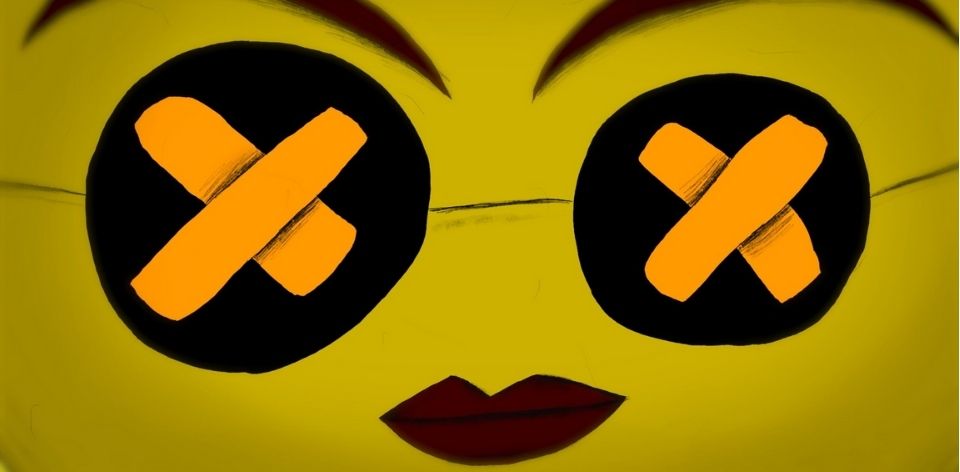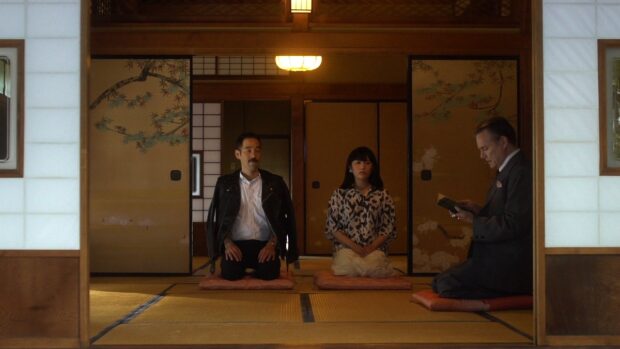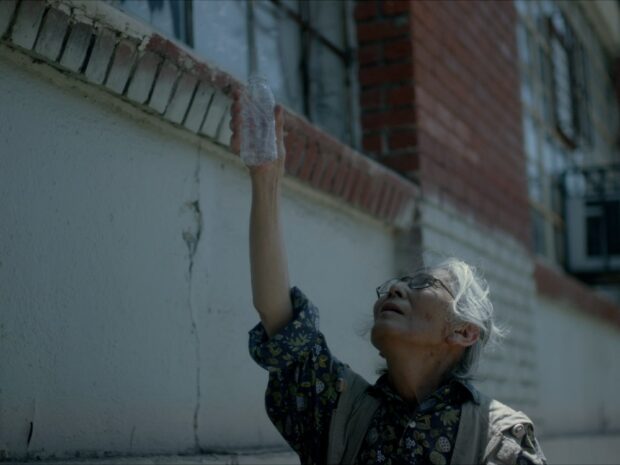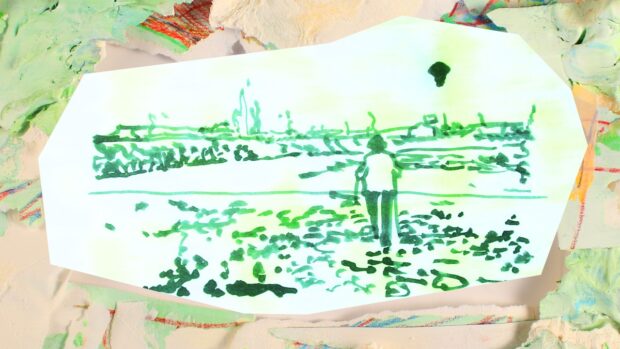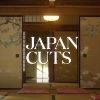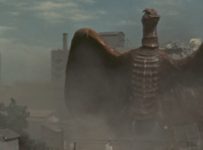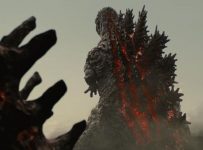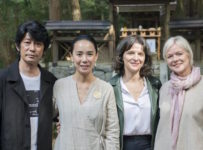Ground control to Major Tom: is this a wedding or a post-apocalyptic Los Angeles? Guess we must be in the avant garde end of the JAPAN CUTS festival.
What is an experimental film? In an era when anybody can pick up a phone and ponder the flies on their windowsill, the term tends to apply to those films that push the envelope with completely new ways of looking at things.
Which is where the annual collection of experimental shorts at JAPAN CUTS comes in. A few years ago, we saw the form applied to stop motion, live action and documentary. Last year’s selection contained films that let us float in and out of the waking world.
This year, the festival has presented a series of eight shorts that “defy categorization.” In other words, this is the playground where imagination, filmmaking and those half-waking thoughts come to hang out and converse.
In HONEYMOON (密月旅行), the longest of the short films at 29 minutes, director and festival favourite Yu Araki (Bivlavia, Fuel) recast the wedding scene from Madame Butterfly. As if narrating a sports telecast, we see the coming together of Cio-Cio San (Qinhua Yang), the lead character of Madame Butterfly, and the early 20th century photographer Adolf de Meyer (Taro Nettleton). The anthropologist and collector of Japanese ofuda (‘charms’) Frederick Starr (Jack Mclean) is the officiator and matchmaker at the ceremony.
Playing on the obsession with Japonisme in the late 19th and early 20th century, Araki toys with chronological contrasts. Both de Meyer and Cio-Cio wear thoroughly modern outfits, like a couple of modern hipsters on a cool vacation in Japan. The narration comes from the lunar base Nagasaki, complete with broken sound and transmission failures. There’s asides on the meanings of words when the ceremony is delayed, and a literal catastrophic stumble at the end. Take it as absurdity if you will, but there’s some wry observations on the way Japanese culture continues to be appropriated for its aesthetic value.
ZONA is a very different beast. Made for people who like their short films like they like their cups of tea: experimental and set in the near future of Los Angeles. In Masami Kawai’s short, she follows an elderly immigrant woman (Kana Kawai) who braves the sweltering LA heat and patrolling police in order to secure water for herself and her disabled neighbour. It’s great story told in a compact space, sketching out the parameters of a world without telling us anything more than what we need to know. You can imagine everything else going on for yourself.
The other ‘lengthy’ short film is the wonderfully titled SCHOOL RADIO TO MAJOR TOM, in which director Chisaka Takuya takes us back to the summer of 1989. Eisuke Hoshi hosts the morning radio section of the school frequency during a time that nobody is listening. He does old radio plays, and while he is away a young girl comes in and records her parts, portraying the character of David Bowie’s famous character. It’s a charming throwback that marks Takuya as a talent to keep a very close eye on.
Several animated shorts take very different experimental approaches. In Onohana’s IN A MERE METAMORPHOSIS, the animation was produced in collaboration with visitors to her past exhibitions as they traced her original illustrations. The result is some keen abstraction. Meanwhile, RED TABLE is like a nightmarish Pixar narrative. In Hakhyun Kim’s short film, a young boy’s play session with a train set ends with a wad of cash covered in blood. Kids these days.
Of course, it’s almost impossible to have a film festival at the moment and not talk about the pandemic. Two films directly address it, albeit with divergent styles. Originally commissioned by the Sydney Opera House for a digital exhibition, Koki Tanaka’s REFLECTIVE NOISES (RECONFIGURATION) ponders what the long term effects of social distancing might be. Will it rewire our brains in recast and restricted ways, or as the film asks, “is the act of coming together starting to lose its meaning?” It’s particularly pertinent given that, at the time of writing, Sydney is entering its twelfth week of a second lockdown. In 4 JUNE, 2020, Yoko Yuki uses similar techniques to 100percentelectrical and A Snowflake In the Night, she reflects on a visit with her family before Japan’s own state of emergency.
So, as large chunks of the world continue to be locked out of travel due to pandemic restrictions, Nao Yoshigai and Hirofumi Nakamoto’s NIGHT SNORKELING offers a zen chance to get away for a few moments, as the floating world and creatures of the titular snorkeling fill our screens. After all, what’s more experimental than travel in the middle of a pandemic?
JAPAN CUTS 2021 ran from 22 August to 2 September 2021 as a hybrid festival. You can check out our entire coverage, and previous years, at our JAPAN CUTS hub. Read more coverage of Japanese films from the silent era to festivals and other contemporary releases. Plus go beyond Japan with more film from Asia in Focus.

